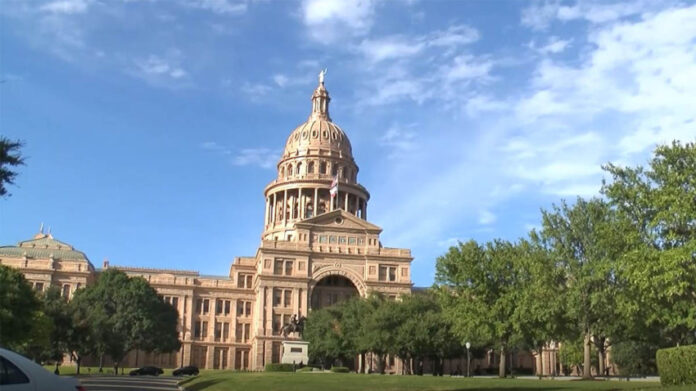The City of Brownsville is preparing for the 87th Texas Legislative Session which starts on Jan. 21 and runs through May 31.
In a memo sent to the city commission, City Manager Noel Bernal said the state budget will be central to all policy discussions, especially since, in the last two years, state revenue has not kept pace with projections, primarily due to decreased receipts from oil and gas severance taxes.
“The COVID-19 pandemic will create an additional fiscal challenge with State Comptroller Glenn Hager reporting ‘The COVID-19 pandemic and low price of crude oil continue to weigh on the Texas economy and sales tax revenue’. The ramifications of COVID-19 will greatly affect the 87th Session as restricted attendance and limited legislation will be the new normal,” Bernal wrote in the memo.
Bernal continued on how with many demands and limited dollars, legislators will be extremely mindful of holding the line on funding requests. He said the current legislature is extremely conservative and the general election results will not significantly change the balance of power.
A brief overview of the issues pertinent to the City of Brownsville for this upcoming legislative issues include:
>> DPS/BPD Tactical Training Center.
>> Economic Development- New Space.
>> Local Control and State Preemption.
>> Criminal Justice Reform Issues.
>> Annexation.
>> Public Health/ Health and Human Services.
>> Transportation.
>> Stormwater Infrastructure and Flood Mitigation.
>> Presumptive COVID-19 Coverage for First Responders.
>> Broadband Connectivity/ Digital Divide.
>> Sales Tax- Destination Sourcing.
The requests include the following:
The Texas Department of Public Safety (DPS) and Brownsville Police Department are currently working on the development of a Tactical Training Center to be used for DPS, BPD and other law enforcement agencies.
An additional $30 million funding request would provide enough funding to complete the project and give South Texas a state of the art training facility for all law enforcement agencies.
Economic Development- New Space: The City of Brownsville is focused on growing the NewSpace Sector Economy in Brownsville working off activity occurring at the SpaceX Boca Chica Site.
The NewSpace Economy is projected to reach over $1 trillion dollars by 2040 in investment according to research by Morgan Stanley comprised of over 1,200 companies in all aspects of space related business.
Legislative action for this item includes the creation of a State NewSpace Working Group to study the future of this sector and develop recommendations for the 88th Legislative Session. The State of Texas created the Spaceport Trust Fund but has only funded it once for the attraction of SpaceX Brownsville.
“With the NewSpace industry in full growth mode it would be beneficial for funding to restart to support said growth as a means of further diversifying the state economy in a post COVID-19 world,” the item reads.
The item also mentions vaccine deployment and states the Texas Mexico border is a huge economic driver for the entire state of Texas and critical for many businesses with dependence on the logistical supply chain.
“The border should be a high priority area for the State of Texas when it comes to COVID-19 vaccine deployment,” it reads.
Local Control and State Preemption: Oppose all bills limiting local control, support bills that protect local control for municipalities.
Public Health/ Health and Human Services: Support all bills that improve Public Health along the US/ Mexico border.
Broadband Connectivity/ Digital Divide: In 2020, the City of Brownsville led the effort to create a Digital Alliance, including seven public agencies to fund the Broadband Feasibility and Digital Inclusion Plan.
The National Digital Inclusion Alliance named Brownsville as the least connected city in the U.S.
“This shows a severe lack of connectivity in the Rio Grande Valley,” the item reads. “Brownsville had a plan to tackle the Digital Divide and would like to move it forward.”
Legislative action for this item includes to support the creation of a funding program but not only for underserved areas and instead all areas of Texas that can show the need.
“The issue is not only a rural issue but also occurring in every city in Texas,” it reads.




